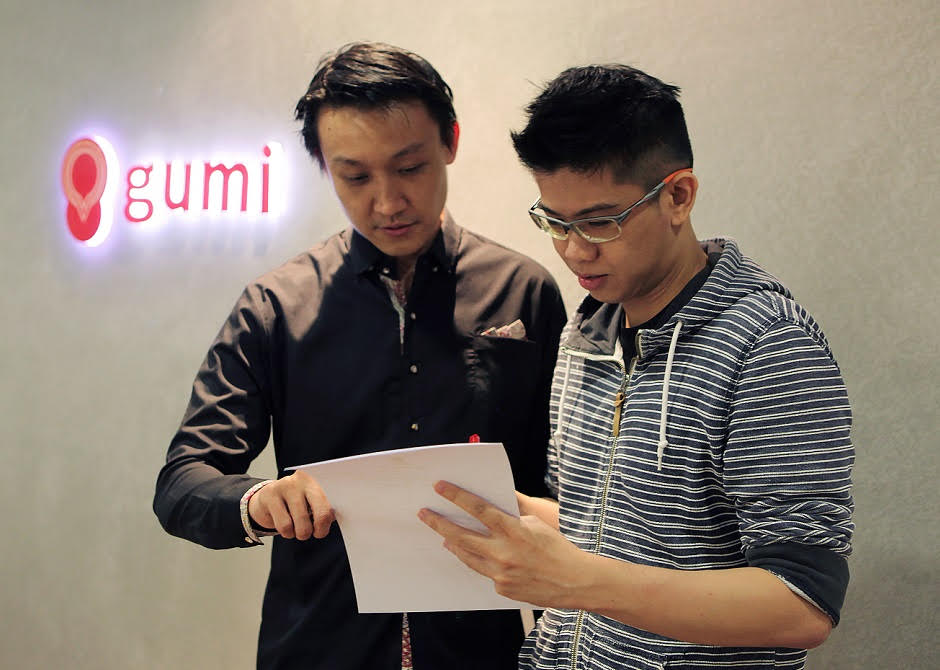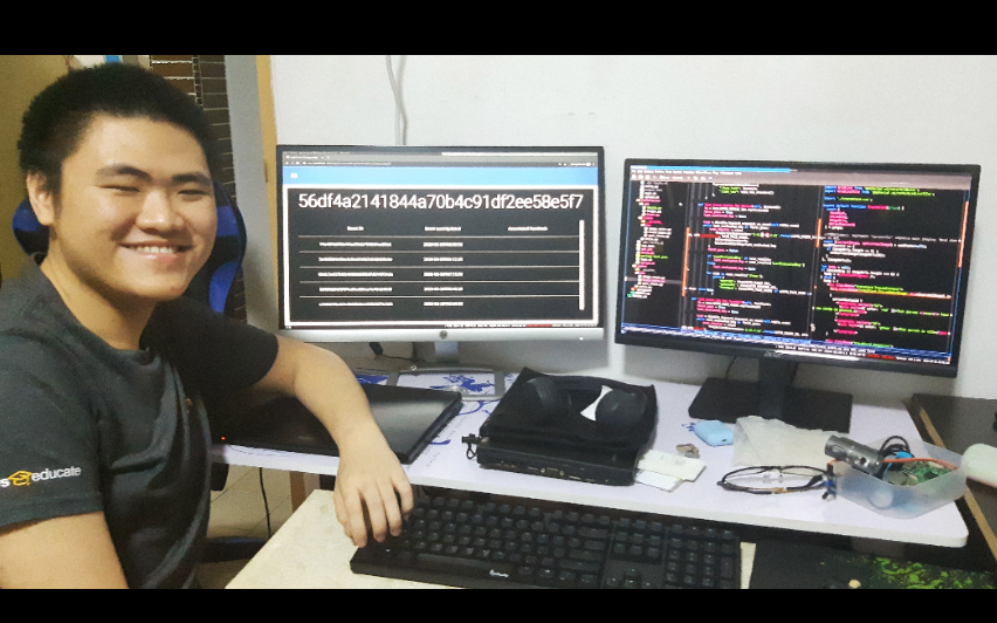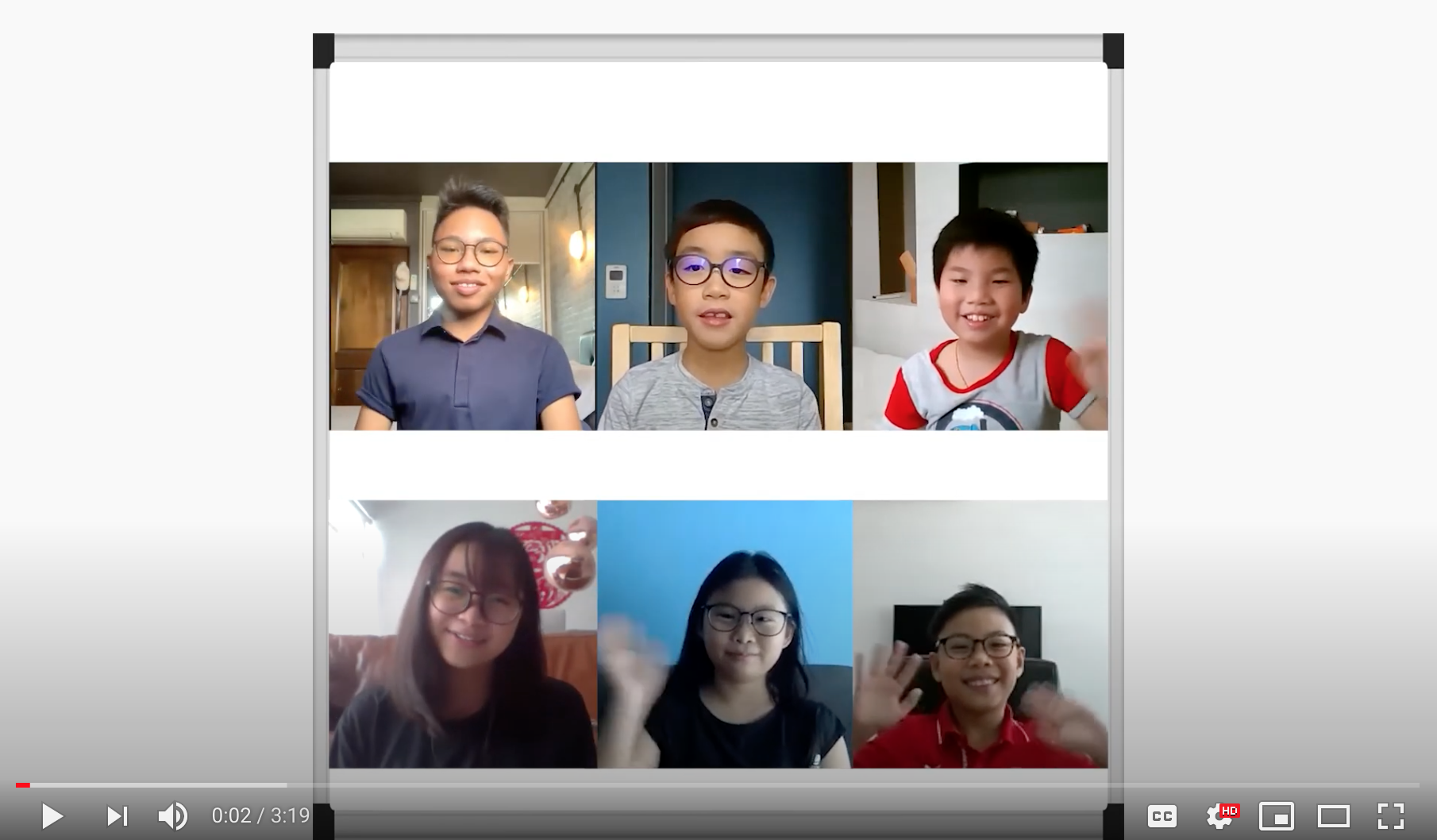When Russell Ng reaches his office every morning, the first thing he does is play games. He also checks Facebook, online forums or YouTube, and all of that is part of his job.
The 26 year-old is a Game Designer at game publisher gumi Asia and his morning routine may involve all the above activities as he researches online for interesting visual effects or character inspirations and gathers player feedback on gumi’s games.
Keeping the gaming landscape fresh
Games have become serious business. There are now about 2.2 billion gamers across the globe who are expected to generate US$108.9 billion in game revenues this year. Mobile gaming is on the rise with smartphone and tablet gaming growing 19% year on year to USD$4.6 billion, claiming 42% of the market.
With thousands of games and apps competing with gumi’s for eyeballs and attention, it is up to game designers like Russell to make ensure players stay entertained and engaged.
“People often ask me: Do you just play games? We do but that’s just one part of our job,” he said. “Prior to becoming a Game Designer, I was a Game Tester where we had to continuously test the build, identify and document the issues observed to improve the game,” Russell added.
“We also spend a lot of time on tasks like testing the game characters to make sure that they are in sync with the rest of the game, or creating interesting histories and background stories for new characters.”
Passion, attitude, skills
A big part of the company’s success is due to the company’s staff, who have to work hard at making the game enjoyable, said Ronnie Tan, gumi Asia’s Director of Operations.
“Like Russell, our staff are committed and would sometimes work till late to attend to any unforeseen issues during the day,” he said. “That is why I don’t mind if they go on social media at work. The important thing is that the work is done.”
A veteran in the gaming industry, Ronnie started out back in the early 2000s, working for some of the biggest Japanese games companies. These companies have high standards of their work and they were very particular about quality – everything mattered, from the sound, to the design of the character to the colours that appear on-screen, Ronnie shared.
“The Japanese were very detailed,” he said. “They would make sure you knew one part of the job thoroughly before they moved you to the next role.”
At Gumi, Ronnie also ensures that all his staff are properly trained – as his Japanese bosses had – before moving them up. He also empowers them to manage some of the big challenges in handling the tasks, but makes it clear that they should speak up if they are unsure, as performance is critical.
But, he adds, “We work hard and play hard. It’s part of the culture here and the reason why we love our jobs, even though it’s not easy.”
Talking the talk
To create an environment where everyone feels likes engaged, motivated and part of the family, Ronnie bonds with his younger employees by speaking the same lingo that they do.
Recalling with a laugh, Russell said, “Ronnie sometimes like to share with us brain-teasers. At times, he also speaks in analogies and calls us [the Game Designers] mages, because we have to think up new ideas and we ‘launch’ them for the game”.
The company’s Quality Assurance team – people who test the game – are the “Tanks”, which is a common gaming term for characters that act as front-line troops and bear the brunt of enemy attacks while shielding the rest of their team from the line of fire.
“They have to ‘tank’ the new ideas and keep testing them to make sure they work,” said Ronnie, with a grin.
Such openness between the bosses and the employees is one of the reason that have made gumi an attractive place for people like Russell to work in.
A young person’s game?
Don’t think that only the young are suited to work in a games company. Ronnie, for one, is happy to accept workers of all ages, as long as they have the right attitude, passion and skills.
“It is not the age of a person that matters, but what value that person can add to the organisation as a whole,” Ronnie explained.
From Ronnie’s perspective, grooming interns or fresh graduates with the necessary training could help fill the shortage of talent in Singapore. In fact, Russell was one of the two employees from gumi who was sent on SkillsFuture’s Earn and Learn Programme.
Armed with a Diploma in Outdoor Adventure Learning, Russell later took up a Specialist Diploma in Games Development at Nanyang Polytechnic to further enhance his skills and learn in greater depth what makes a good game.
“I think it the Earn and Learn Programme has worked out really well for us. I am open to sending more of my staff to such programmes to pick up technical skills,” Ronnie said.
For Russell, he is keen to learn more to further build his budding career, and contemplates pursuing a Degree in Business that would give equip him with new knowledge and skills.
“There’s a lot to learn and I’ve only just started. I’m hoping stay in this for a long time,” he revealed.
And the best part? He can do that while playing games.






